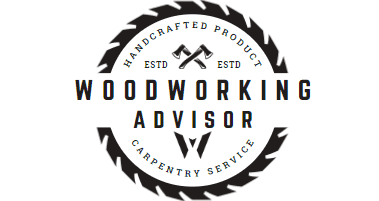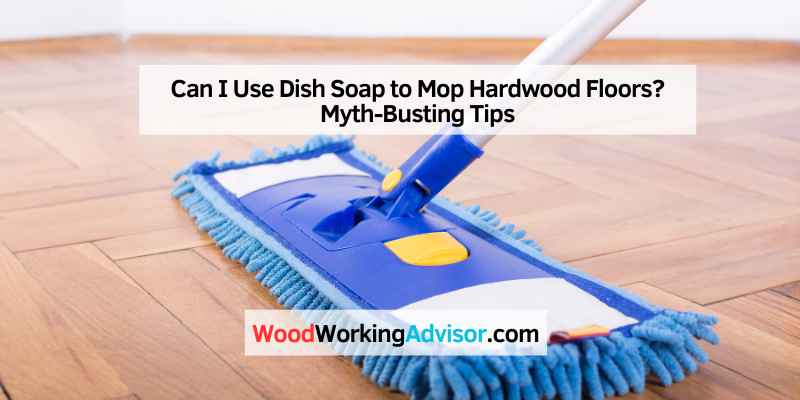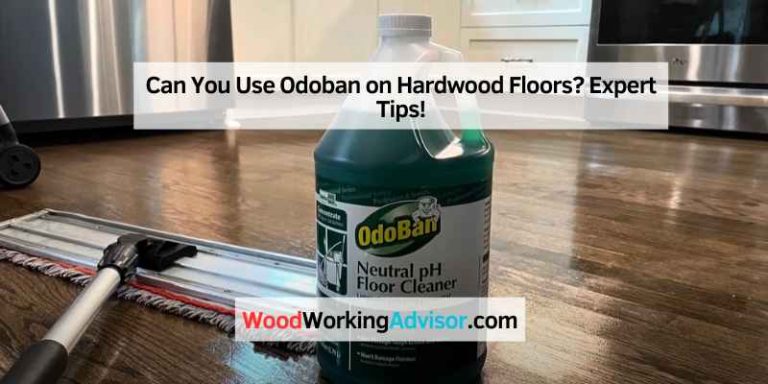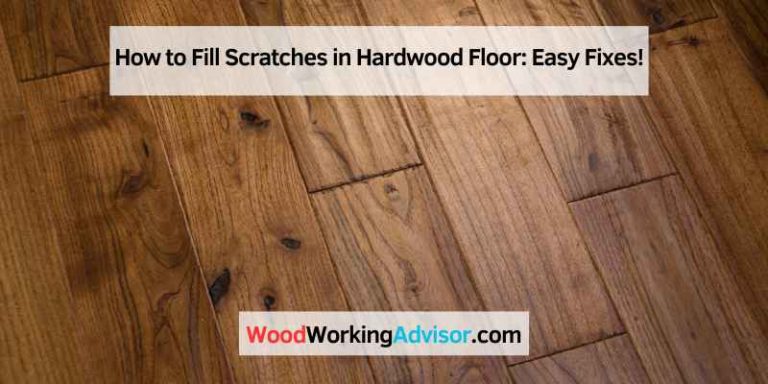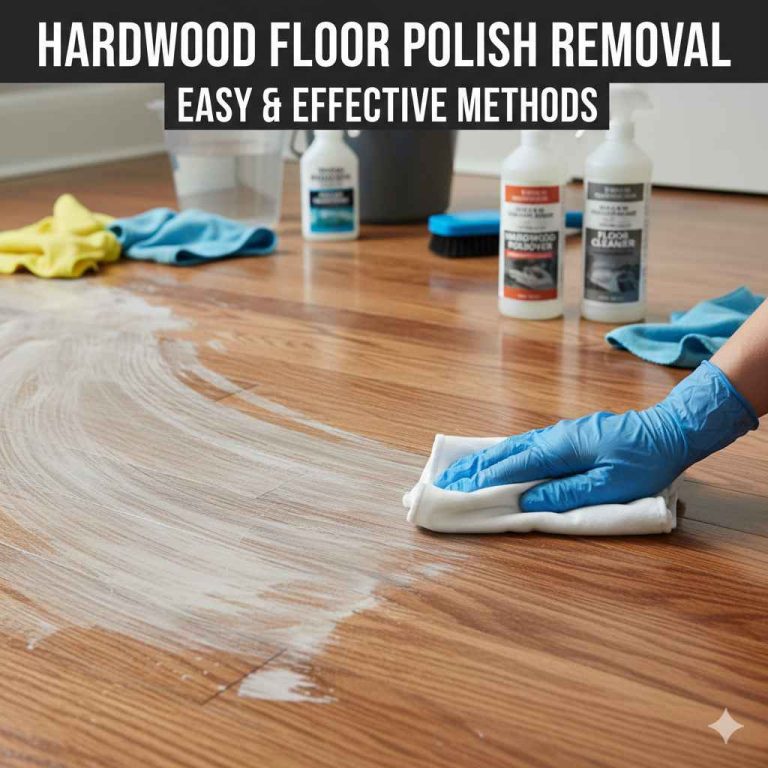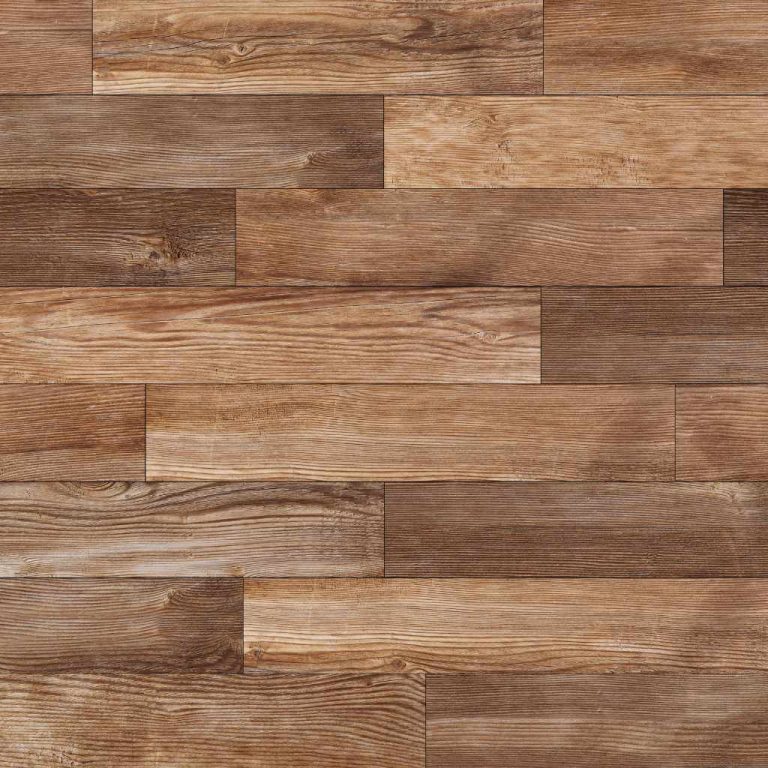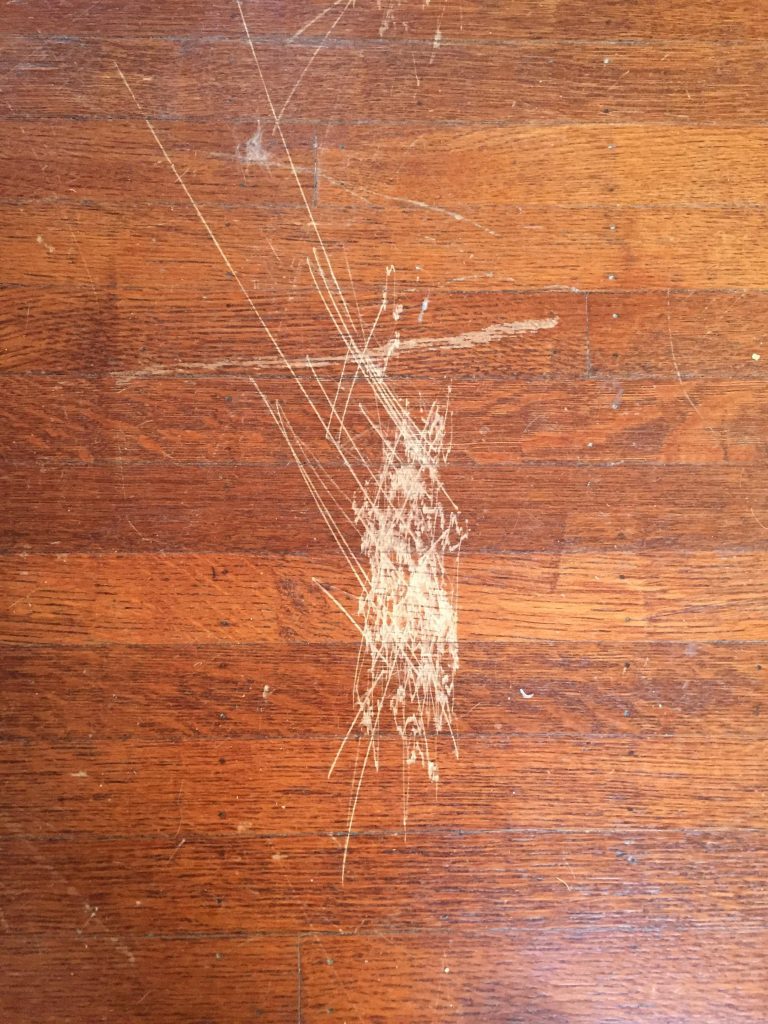Can I Use Dish Soap to Mop Hardwood Floors? Myth-Busting Tips
Yes, you can use dish soap to mop hardwood floors. However, it’s important to use a minimal amount of dish soap mixed with water to avoid leaving a soapy residue on the hardwood surface.
Overusing dish soap can lead to a buildup that may damage the wood over time. It’s important to follow specific guidelines to ensure the proper care and maintenance of your hardwood floors. Hardwood floors add warmth and beauty to any home, but they require regular cleaning to maintain their appearance and longevity.
Using dish soap to mop hardwood floors can be a cost-effective and efficient cleaning solution. However, it’s essential to use the right dilution and technique to prevent any potential damage to the wood. Let’s explore the best practices for using dish soap to mop hardwood floors and how to ensure a clean and well-maintained surface.
The Great Dish Soap Debate
When it comes to cleaning hardwood floors, there is often a great debate about whether or not dish soap is a suitable option. Some people swear by it, while others believe it can cause damage to the delicate surface of the wood. In this article, we will explore the common myths surrounding dish soap and hardwood floors, as well as the pros and cons of using dish soap as a cleaning agent.
Common Myths About Dish Soap And Hardwood Floors
There are several misconceptions about using dish soap to mop hardwood floors. Let’s take a look at some of the most common myths:
- Myth 1: Dish soap is gentle enough to use on any type of hardwood floor.
- Myth 2: Dish soap leaves no residue and will not cause streaks or dullness.
- Myth 3: Dish soap is an effective disinfectant for hardwood floors.
While these myths may seem convincing, it’s important to separate fact from fiction when it comes to maintaining the beauty and longevity of your hardwood floors.
Pros And Cons Of Using Dish Soap
Before deciding whether or not to use dish soap on your hardwood floors, let’s weigh the pros and cons:
| Pros | Cons |
|---|---|
|
|
While dish soap can be a convenient option for cleaning hardwood floors, it is essential to use it sparingly and with caution. Always follow the manufacturer’s recommendations and test a small, inconspicuous area before applying it to the entire floor.
In conclusion, while dish soap can be used to mop hardwood floors, it is important to be aware of the potential risks and limitations. Consider alternative cleaning methods, such as using a vinegar and water solution or a specifically formulated hardwood floor cleaner, to ensure the longevity and beauty of your hardwood floors.
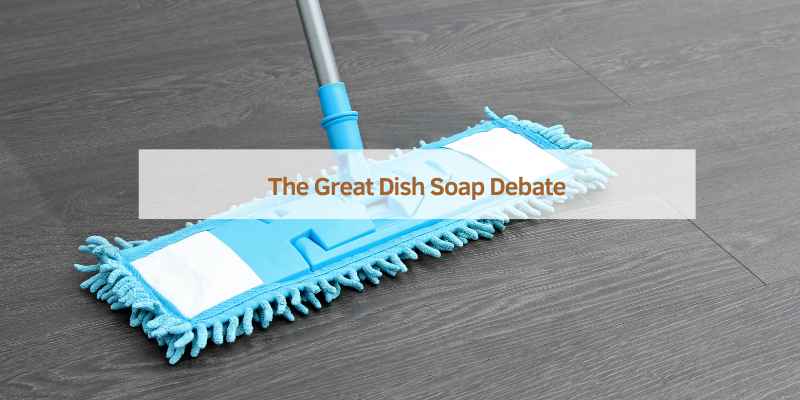
Characteristics Of Hardwood Floors
Maintaining hardwood floors requires care. While it’s not recommended to use dish soap for mopping, a mixture of water and a small amount of dish soap can be gently applied. Always ensure the mop is only slightly damp to avoid excess moisture on the wood.
Types Of Hardwood Finishes
There are several types of finishes commonly used on hardwood floors. Each type has its own unique characteristics and benefits. Some of the most popular finishes include:
- Oil-based finishes: These finishes provide a rich and traditional look to hardwood floors. They penetrate the wood and enhance its natural beauty. Oil-based finishes take longer to dry and require regular maintenance to keep the floors looking their best.
- Water-based finishes: Water-based finishes are popular for their quick drying time and low odor. They are also more environmentally friendly compared to oil-based finishes. Water-based finishes provide a clear and durable protective layer on the wood.
- Wax finishes: Wax finishes create a soft and matte look on hardwood floors. They require regular reapplication to maintain their appearance and protect the wood. Wax finishes are not as durable as other types of finishes and may require more frequent maintenance.
- Polyurethane finishes: Polyurethane finishes are known for their durability and resistance to scratches and stains. They provide a glossy or satin sheen to hardwood floors and require minimal maintenance.
How Water Interacts With Wood
Understanding how water interacts with wood is crucial when it comes to cleaning hardwood floors. Wood is a natural material that can absorb water, causing it to expand and potentially warp or damage the flooring. It’s important to avoid excessive moisture when cleaning hardwood floors.
When water comes into contact with wood, it can seep into the small cracks and crevices, leading to swelling and discoloration. This is especially true for unfinished hardwood floors, as they lack the protective layer provided by finishes.
To prevent damage, it’s recommended to use minimal water when cleaning hardwood floors. A slightly damp mop or cloth is sufficient to remove dirt and grime without saturating the wood. Additionally, using a pH-neutral cleaning solution specifically designed for hardwood floors can help maintain their appearance and prolong their lifespan.
Overall, being mindful of the characteristics of hardwood floors and how water interacts with wood will ensure that your cleaning routine is safe and effective, keeping your floors looking beautiful for years to come.
Cleaning Agents And Wood
To maintain hardwood floors, avoid using dish soap for mopping. Instead, opt for a solution of water and vinegar, a gentle and effective homemade cleaner for wood surfaces. Ensure the mixture is lightly foamy before dampening the mop for safe and proper cleaning.
Ph Levels And Wood Safety
When it comes to cleaning hardwood floors, using the right cleaning agent is crucial. Hardwood floors are delicate and using the wrong type of cleaning agent can cause damage to the wood’s finish. One of the most common questions people ask is whether or not they can use dish soap to mop hardwood floors. While dish soap is an effective cleaning agent, it is not recommended for hardwood floors.
Chemical Components of Dish Soaps
Dish soaps contain chemical components that can be harmful to hardwood floors. For instance, dish soaps have a high pH level, which means they are alkaline. Most hardwood floor finishes are acidic, and using an alkaline cleaning agent can cause damage to the finish. Over time, dish soap can strip the finish from the hardwood floor, leaving it dull and unprotected.
Alternatives to Dish Soap for Cleaning Hardwood Floors
There are several alternatives to dish soap that are safe and effective for cleaning hardwood floors. One of the best alternatives is white vinegar. White vinegar has a low pH level, making it acidic, which is safe for hardwood floors. To clean your hardwood floors with white vinegar, mix one part vinegar with three parts water and use a damp mop to clean the floors.
Another great alternative to dish soap is a hardwood floor cleaner. These cleaners are specially formulated to clean and protect hardwood floors without causing damage to the finish. They are available in most home improvement stores and online.
Conclusion
In conclusion, using dish soap to clean hardwood floors is not recommended. Dish soap has a high pH level, which can cause damage to the finish of the hardwood floors. Instead, use alternatives such as white vinegar or a hardwood floor cleaner to clean and protect your hardwood floors. Remember to always test a small area of your hardwood floors before using any new cleaning agent to ensure that it is safe for your floors.
Alternative Cleaning Solutions
When it comes to cleaning hardwood floors, there are alternative solutions that can be just as effective as traditional cleaners. Two popular options are using a vinegar and water mix or opting for commercial hardwood floor cleaners.
Vinegar And Water Mix
White vinegar is a versatile and natural cleaner that is often used to clean wood floors. To create a simple yet effective cleaning solution, mix one part vinegar with three parts water. This gentle mixture can be safely used on hardwood floors to remove dirt and grime without causing damage.
Commercial Hardwood Floor Cleaners
For those who prefer ready-to-use solutions, there are a variety of commercial hardwood floor cleaners available on the market. These products are specifically formulated to clean and protect hardwood floors, providing a convenient and efficient cleaning option.
Diy Mopping Solutions
Clean your hardwood floors with a DIY solution of water and a few drops of dish soap. Mix it gently, then dip and wring out your mop until slightly damp for an effective cleaning method. Avoid large bubbles and excess moisture to protect your hardwood floors.
Recipes For Homemade Cleaners
If you’re looking for a cost-effective and eco-friendly way to clean your hardwood floors, why not try making your own cleaning solutions at home? Not only are these DIY mopping solutions safe for your hardwood floors, but they also provide effective cleaning without any harsh chemicals. Here are a few recipes for homemade cleaners that you can easily make:
- Vinegar and Water Solution: Mix equal parts of white vinegar and water in a bucket. This solution is gentle on hardwood floors and helps to remove dirt and grime.
- Soap and Water Solution: Add a few drops of mild dish soap to a bucket of warm water. Make sure to choose a soap that is free of harsh chemicals and additives.
- Essential Oil Cleaner: Combine water, vinegar, and a few drops of your favorite essential oil (such as lemon or lavender) in a spray bottle. Spray the solution onto the floor and mop as usual.
Safe Ingredients For Hardwood
When it comes to cleaning hardwood floors, it’s important to use ingredients that are safe and gentle. Harsh chemicals can strip away the protective finish and damage the wood. Here are some safe ingredients to use when cleaning hardwood floors:
- White Vinegar: White vinegar is a natural cleaner that can effectively remove dirt and grime from hardwood floors without causing any damage.
- Mild Dish Soap: Choose a mild dish soap that is free of harsh chemicals and additives. This will help to clean the floors without leaving behind any residue.
- Essential Oils: Adding a few drops of essential oils to your homemade cleaners not only provides a pleasant scent but also adds additional cleaning properties.
By using these homemade cleaners with safe ingredients, you can ensure that your hardwood floors are clean and well-maintained without any potential harm. So, why not give these DIY mopping solutions a try and enjoy the benefits of a natural and cost-effective cleaning method?
Proper Mopping Techniques
When mopping hardwood floors, it is not recommended to use dish soap. Instead, opt for a top-rated broom or vacuum to remove debris, dust, and pet hair. For cleaning, mix water with a few drops of dish soap in a bucket, wring out the mop until slightly damp, and gently clean the floors.
Best Practices For Mopping
When mopping hardwood floors, it’s essential to use the best practices to ensure effective cleaning without causing any damage. Here are some tips to keep in mind:
- Use a mild cleaning solution to avoid damaging the wood.
- Wring out the mop thoroughly to prevent excess water from seeping into the wood.
- Work in small sections to ensure thorough cleaning and drying.
- Choose a microfiber mop to trap dirt and avoid scratching the surface.
Avoiding Common Mopping Mistakes
When mopping hardwood floors, it’s important to avoid common mistakes that can lead to damage. Here are some mistakes to steer clear of:
- Avoid using harsh chemicals or abrasive cleaners that can strip the finish.
- Avoid leaving excess water on the floor, as it can seep into the wood and cause warping or discoloration.
- Avoid using a soaking wet mop, as this can lead to overexposure to moisture.
Protecting Your Hardwood Floors
To protect your hardwood floors, it’s not recommended to use dish soap for mopping. Instead, opt for a top-rated broom or vacuum to remove debris, then mix water with a few drops of dish soap in a bucket. Gently mop the floor with the damp mixture for effective cleaning.
Routine Maintenance Tips
To keep hardwood floors looking pristine, sweep or vacuum regularly to remove dirt and debris. Avoid using harsh chemicals that can damage the wood.
Preventing Long-term Damage
Protect your hardwood floors by using gentle cleaning solutions. Avoid excessive moisture and always wipe up spills promptly to prevent staining.
Expert Advice And Recommendations
While dish soap may seem like a convenient solution for mopping hardwood floors, it is not recommended. Water and wood do not mix well and using dish soap can cause damage to the hardwood. It is best to use a cleaning solution specifically designed for hardwood floors or a mixture of water and white vinegar.
Cleaning Experts Weigh In
When it comes to mopping hardwood floors with dish soap, cleaning experts have varying opinions. While some experts recommend using a mild dish soap solution for occasional cleaning, others advise against it due to the risk of residue buildup.
What Manufacturers Say About Floor Cleaning
Manufacturers of hardwood floor products generally discourage the use of dish soap for mopping. They suggest using specific hardwood floor cleaners to maintain the floor’s finish and longevity.
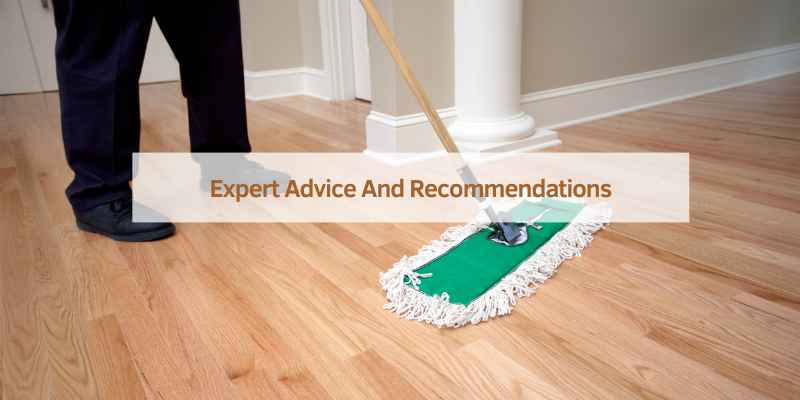
Frequently Asked Questions
Can You Mop Wood Floors With Dawn Dish Soap?
Yes, you can mop wood floors with Dawn dish soap. Mix a few cups of water with a few drops of dish soap in a bucket. Gently mix until you see some foam but no large bubbles. Dip your mop in the mixture and wring it out until slightly damp.
What Is The Best Thing To Mop Hardwood With?
The best thing to mop hardwood with is a mixture of water and a few drops of dish soap. Dilute the soap in water, dip the mop, and wring it out until slightly damp. Avoid using only water, as it can damage the wood.
White vinegar is also a popular homemade cleaner for wood floors. Mix one part vinegar with three parts water for a natural cleaning solution.
What Is The Best Homemade Floor Cleaning Solution?
The best homemade floor cleaning solution is a mixture of water and a few drops of dish soap. Mix a few cups of water with a few drops of dish soap in a bucket. Gently mix until you see a few traces of foam, but no large bubbles.
Dip your mop in the mixture and wring it out until it’s slightly damp. White vinegar is also considered a good homemade cleaner for wood floors. Mix one part vinegar with three parts water. Avoid using only water as wood flooring can react like a sponge and swell.
Can I Clean Hardwood With Just Water?
Yes, you can clean hardwood with just water, but be cautious as excessive water can damage the wood.
Conclusion
Using dish soap to mop hardwood floors can be effective when done sparingly. However, it’s important to dilute the soap and avoid excessive water usage to prevent damage. Consider alternative cleaning solutions like vinegar and water for a more gentle approach to maintaining your hardwood floors.
